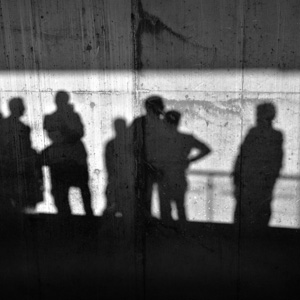Training on Hate Crimes and Incidents for Frontline Police Officers in Canada

Price
$35.00
Content Provider:
Royal Canadian Mounted Police
Tagged Categories:
- IDEA (Inclusion, Diversity, Equity, Accessibility)
- Investigation Skills
Language
En/Fr
Length
2 Hour(s)
Release Date
June 2024
Frontline police officers play a critical role in the initial response to hate crimes and incidents; responding officers secure the scene, conduct a preliminary investigation, and provide important reassurance and access to support, which can help victims and their broader communities initiate the recovery process. This course explores a variety of foundational topics to assist frontline police officers who may attend a call for service that involves a potential hate crime or incident.
When you have completed this course you will be able to:
- Differentiate between hate-motivated crimes and hate-motivated incidents
- Identify criteria for and indicators of a hate crime/incident
- Recognize sections of the Criminal Code of Canada that deal with hate propaganda and hate crimes
- Identify aggravating factors that will establish that a crime was motivated by hate, thereby invoking Section 718.2(a)(i) of the Criminal Code of Canada that allows for increased penalties at the sentencing stage
- Describe Section 2b of the Canadian Charter of Rights and Freedoms, which enshrines the fundamental freedom of “thought, belief, opinion and expression, including freedom of the press and other media of communication” (i.e. “freedom of speech”)
- Identify limits to freedom of speech in Canada and restrictions on “hate speech” that is deemed contrary to the spirit of the Canadian Charter of Rights and Freedoms
- Recognize the 11 “hallmarks of hate” that distinguish hate speech from offensive but non-criminal language
- Identify recent trends in hate crime victimization in Canada and the factors that appear to drive significant increases over time
- Describe the segments of the population most at risk of hate crime/incident victimization and why
- Describe the segments of the population most likely to perpetrate hate crime offences and why
- Recognize that the vast majority of hate crimes and incidents are not reported to police and why
- Explain why reporting hate crimes and incidents is important and the role that community engagement activities can play in increasing reporting rates in the context of hate-motivated crimes and incidents
- Describe what is known about the impacts of hate for victims, their broader communities, and Canadian society
- Describe the critical importance of a victim-centred, trauma-informed police response in the context of hate crimes and incidents
- Recall how to effectively interact with and support hate crime victims
- Describe what is known about active hate groups in Canada and the extent to which they are thought to be involved in the perpetration of hate-motivated crimes and incidents
- Describe cyberhate and its connection to “hate speech”
- Recognize that the internet is a powerful tool for the expression of hate
- Recognize some of the challenges for police in detecting and responding to cyberhate
- Explain the applicability of existing Criminal Code of Canada sections to hate-motivated criminal acts perpetrated online
- Recognize that frontline police officers and their supervisors play a critical role in the initial response to hate crimes and incidents
- Explain the importance of hate crime prevention and why it matters
- Recognize that a dual enforcement/prevention approach to policing hate crimes and incidents can help to reduce such occurrences, mitigate the immense harms they cause, and increase feelings of safety and security among targeted groups
The French version of this course will be coming soon.
